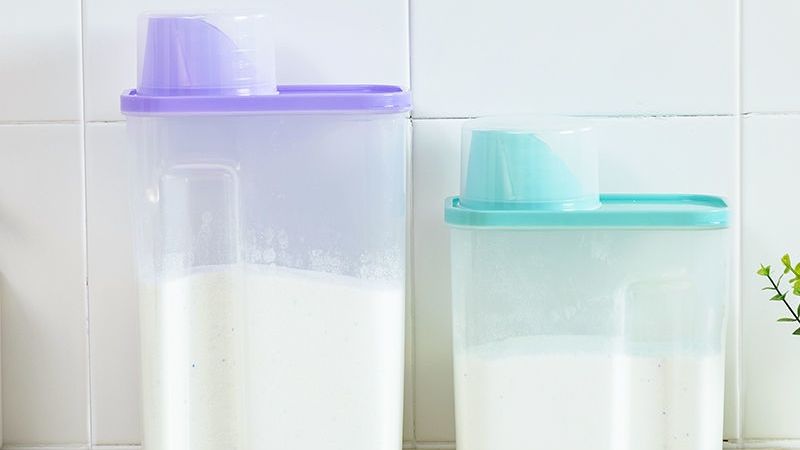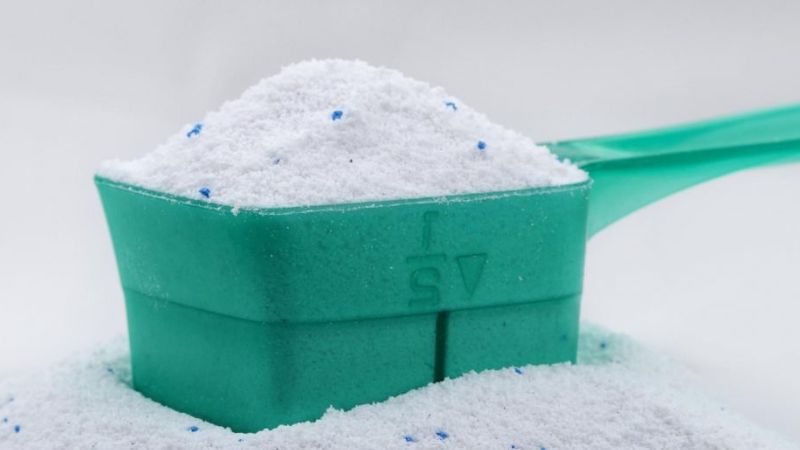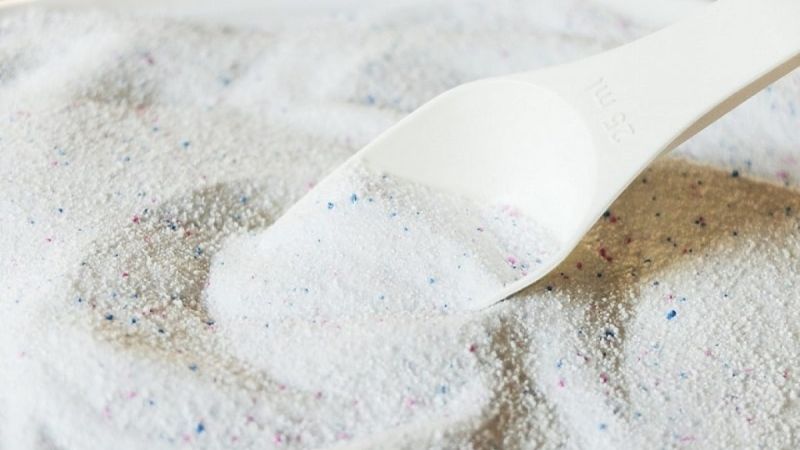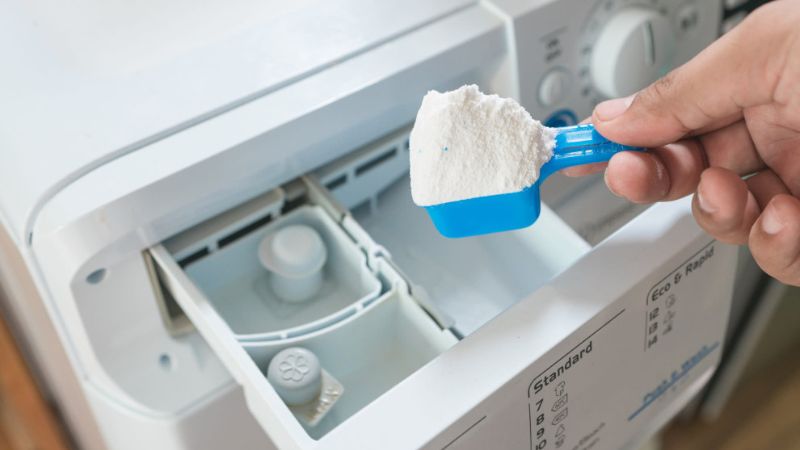Many people are familiar with this detergent, considering it to be an easy-to-use product. However, there are still some lesser-known facts about it. Let’s explore whether this detergent has an expiration date and how to properly store it.
1 Does detergent have an expiration date?
Contrary to popular belief, detergent products do not expire or lose their effectiveness over time, unless they are exposed to wet environments. Moisture can cause the detergent to clump or harden, preventing it from dissolving completely and potentially leading to mold formation.

Does detergent have an expiration date?
2 How to store different types of detergent
Compressed detergent
Compressed detergents are convenient and easy to dissolve, as they have an outer layer made of polyvinyl film. However, they are prone to puncture if not stored properly. It is recommended to store these products in their original containers to ensure their longevity, similar to liquid detergents.

Compressed detergent
Single-use detergent
To store single-use detergent, it is important to keep it in a sealed container and place it in a dry and ventilated area. Moist environments, heat sources, and direct sunlight should be avoided.

Single-use detergent
3 Some notes when using detergent
More foam does not mean better detergent
It is a common misconception that the more foam a detergent creates, the better it cleans. However, this is not entirely true, as different detergents contain varying amounts of surfactants, which can have different cleaning properties. The amount of foam does not necessarily affect the detergent’s cleaning ability. For washing machines, it is recommended to choose a detergent that produces less foam.

More foam does not mean better detergent
Classify clothes and use suitable detergent
To ensure optimal cleaning and fabric preservation, it is advisable to classify clothes before washing them. For example, white or light-colored clothes can be paired with strong detergents, while dark-colored clothes require detergents that help preserve color. Delicate fabrics like linen and silk should not be washed with strong surfactants; instead, they should be treated with specially formulated detergents that are neutral and free of bleach or harsh chemicals.

Classify clothes and use suitable detergent
Use an adequate amount of detergent
Using too much detergent not only wastes the product but also leads to residue buildup on clothes, which can be difficult to rinse off, especially in front-loading washing machines. Conversely, using too little detergent may result in ineffective cleaning. It is recommended to use the measuring spoon provided with the product to determine the appropriate amount of detergent to use.

Use an adequate amount of detergent
Determine the type of washing machine to choose the appropriate detergent
Nowadays, detergent manufacturers offer a wide range of products specifically designed for different types of washing machines. For front-loading or industrial washing machines, it is recommended to choose products that produce less foam to prevent overflowing and potential damage. Ceiling washing machines are less sensitive to detergent selection, but excessive foam can still cause issues. Therefore, it is important to select a suitable detergent to avoid any complications.

Determine the type of washing machine to choose the appropriate detergent
Use specialized detergent for washing machines
While it is possible to use any type of detergent for hand-washing, it is not recommended for washing machines. Hand-washing detergents tend to create more foam, which can potentially damage the machine’s components. To maintain the lifespan of the washing machine, it is preferable to use specialized detergent designed for washing machines. These detergents dissolve easily, produce less foam, and help conserve water during the rinsing process.

Use specialized detergent for washing machines
Above is an informative article about whether detergent has an expiration date and how to store it properly. We hope this information is useful to you.
Recognizing Spoilage and Best Practices for Storing Milk
Dien May XANH is advocating for the careful storage of milk to ensure people consume the nutrition-rich beverage that is safe and healthy. Milk, a source of vitamins and minerals essential to our bodies’ functioning, can become tainted if not properly handled, causing painful, and in some cases, severe gastrointestinal distress.






































